- Home
- H A CULLEY
WHITEBLADE: Kings of Northumbria Book 1 Page 4
WHITEBLADE: Kings of Northumbria Book 1 Read online
Page 4
The great storm had tossed the birlinn hither and thither after the mast had been reduced to a stump. The hull had flexed so much in the heavy seas that some of the caulking had been washed out of the strakes that formed the hull and the ship had started to take in water at an alarming rate. By the time they had sighted land they were knee deep in brine. Only frantic bailing had stopped them from sinking before they reached the shore.
Two days later, the surviving twenty-seven men had recovered sufficiently to begin the task of repairing their ship. Aidan had asked and received permission to help them, so he walked down to where the crew were examining the hull of the birlinn. He spotted a boy who looked to be a little bit older than he was and he approached him timidly.
‘Hallo, I’m Aidan. Is there much damage?’ He was half afraid that the boy might give him a pitying look and ignore him, but he didn’t. He turned to him with a broad smile on his face.
‘Hallo, I’m Niall, the son of the helmsman over there, Ruairi. This is the first time I’ve been old enough to accompany the men and I thought it was going to be my last.’
Aidan responded to the other’s friendly grin with one of his own. Feeling encouraged, he asked a question that might display his ignorance, but he took the risk.
‘What’s wrong, apart from the broken mast, obviously? Why did you take on so much water?’
‘How much do you know about ships?’
‘I know how to sail our fishing currachs, but they’re made by stretching waterproofed skins over a light wooden frame. I’ve only been here fifteen months and I lived inland before, so I don’t know much about ship construction, or its problems.’
‘I see. Why? Only fifteen months, I mean. If you don’t mind me asking.’
Aidan gave him a brief account of his life, playing down the reason he’d been wounded.
‘Huh, I’m supposed to be a warrior and have suffered nothing more serious than a nick to my thumb when sharpening my seax, whilst you have already got yourself an impressive scar to prove your valour.’
It took Aidan a moment or two before he realised that he was being teased. He blushed and returned to his original question.
‘Tell me about ship construction.’
‘Well, you lay down a keel, then add the frame before encasing it with planks butted up to each other as tightly as possible. The strakes, or planks, as you might call them, overlap slightly along the long edge. The trick is to make a ship which is light but strongly built. To do that you have to accept a certain amount of flexing of the frame. Obviously this means that the strakes move slightly as well. To overcome this, we pack the gaps between the strakes with shredded fibres of cotton or hemp soaked in pine tar and driven into the seam between the strakes with a caulking mallet and a broad chisel-like tool called a caulking iron. In the storm, the ship flexed so much that some of the caulking came loose, allowing water to seep in.’
‘You seem to know a lot about it, Niall.’
‘My father is our best ship-builder as well as being our helmsman,’ the older boy said modestly. ‘He’s teaching me.’
At that moment Ruairi yelled and beckoned Niall to his side. Aidan followed him without consciously thinking about it.
‘We’ll need more pine tar, Niall. The fishermen only have enough for waterproofing their skins. We’ll have to try and find a source elsewhere.’
‘We get ours from a larger settlement a few miles to the north of here along the coast,’ Aidan blurted out without thinking. ‘Mind you, it’s not cheap and I know the elders have talked about making our own.’
‘Oh and who might you be?’
‘Father, this is Aidan. He arrived here a year or so ago with Brother Finnian, having been badly wounded in a fight with the wretched Uí Néill.’
Aidan wanted to protest that it wasn’t quite like that, but before he could open his mouth, Niall carried on.
‘We could take one of the larger fishing currachs to this settlement to buy more pine tar and perhaps more hemp too. It’s better than cotton, which is all we have left.’ He turned to Aidan. ‘Do you have a currach?’
‘Not of my own; I usually crew for one of the fishermen and his son. Should I go and ask him if he’ll take us?’
The next day they returned with a pile of hemp and as many pots of pine tar as the currach could carry and work started on the hull. The currach turned around and Aidan and the crew headed back to fetch more. Meanwhile, a new mast had been fashioned from a tall pine tree, as had a new spar to carry the mainsail. A replacement sail was being made by the women in the settlement by sewing together several of the smaller sails used for the fishing currachs. The men were also busy making oars to replace the ones lost in the storm.
Once they had sufficient supplies, Aidan helped enthusiastically with the caulking process, but found out that the pitch tar didn’t wash off in sea water. Niall laughed at his efforts to get rid of the tar and showed him how to use sand to get the stuff off his hands and arms – a painful process, as it took off layers of skin along with the sticky tar.
The whole process took a week before the birlinn was ready to set sail. The crew had been making for home with a cargo of furs purchased further south. Luckily the wolf and brown bear pelts had been sewn into oiled leather bags for the voyage and so had survived their immersion in sea water. The crew presented the settlement with a bundle of the furs to thank them for their hospitality and that night everyone got uproariously drunk, including Aidan.
When he awoke the next morning he was surprised to feel as if he was being tossed around in a barrel. The floor on which he lay seemed to slope at an alarming angle in two directions at once and the motion made bile rise in his gullet. He knew that he was about to vomit – and quite violently.
Suddenly, powerful arms lifted him up and held his head over the side of the ship as he heaved up everything he’d consumed the previous night. He slumped back onto the wooden deck of the ship and looked up to see Ruairi grinning down at him.
‘Believe it or not, you’re in better shape than my son,’ he told him. ‘He’s still sleeping like a baby and he spewed all over his tunic in his sleep, dirty little bugger. I’ve a good mind to throw him in the sea to wake him and clean him up.’
‘But he told me he can’t swim!’
‘Nor can he; pity that.’ And the brawny helmsman bellowed with laughter.
Aidan grinned, despite his pounding head, then a thought occurred to him.
‘Er, what am I doing here?’
‘The headman said you wanted to go to Iona, so we’re going to drop you off when we get there.’
‘Oh.’
Aidan would have liked to say goodbye to the people who had tended him and treated him as if he was one of their own, but it couldn’t be helped. Perhaps one day he’d return so that he could say how grateful he was. But he never did, though he always thought of it as the perfect example of Christian charity.
Aidan went and found a leather bucket and one of the crew showed him how to fill it with sea water without it tugging him over the side. Niall was curled up asleep in the prow of the ship. The front of the woollen tunic he was wearing was, as his father had said, covered in vomit. Aidan threw the contents of the bucket over him, washing off him most of the stinking residue of the meat and ale he had consumed the previous night. The boy awoke spluttering and reaching for his seax. When he saw Aidan through his bleary eyes, he groaned and curled up again to go back to sleep.
‘Shall I get another bucket, or is one enough?’
‘If I didn’t like you so much you’d provide the first band on the hilt of my seax.’
A seax had a short blade used for close fighting where the longer blade of a sword was too cumbersome. Typically, it was the blade a young warrior was given first, before he was old enough to wield a heavier weapon. Putting a coloured band around the hilt was the traditional way of marking how many men you had killed in battle. It was an unsubtle way of boasting about your prowess.
An hour l
ater, the two friends had recovered enough to stand at the prow watching the blue-green coastline of Kintyre slide past as they proceeded north under sail. The mainsail wasn’t something to be proud of. Most birlinns sported sails dyed in bright colours, with a device to declare their clan or kingdom. The patchwork of spare buff, off white and dirty grey fishing boat sails depressed the men aboard and they decided to call in at Tarbert, halfway up the Kintyre peninsula and get the sail dyed a uniform yellow. The sail would lack the black wolf’s head of Dal Riada, but at least they wouldn’t be such a laughingstock when others spotted them.
Tarbert had a natural harbour which, thankfully, was devoid of any birlinns at the moment. They easily found a berth alongside the wooden jetty amongst the few fishing boats still in harbour. Not all were currachs; a few were built of timber, like the much larger birlinn. The men carried the sail up to the dyeing works whilst Niall and Aidan climbed the low hill above the settlement. From there they could see the Hebridean Ocean on which they had been sailing and behind them, the waters of Loch Fyne.
‘That’s the Kingdom of Strathclyde over the other side of the sea loch,’ Niall told him. ‘We’re at peace at the moment, but that’s a rare occurrence.’
‘How far up the coast does Dal Riada stretch?’
‘Well, it’s really a group of petty kingdoms who’ve come together and elected a High King to rule them. It’s for their protection as they couldn’t survive long on their own. At the moment it consists of Lorne in the north, Kintyre, where we are at the moment, the Isle of Islay, which is probably the biggest of the kingdoms as it includes Mull, with Iona at its south western tip, Jura and several more smaller islands further out from the mainland. To the south of us, near where we’ve just come from, there’s Ulster. However, we no longer rule all of it, as the pagan Uí Néill are struggling with the Ulaidh for control of it.’
‘And the Ulaidh are part of Dal Riada?’
‘Well, they’re our allies, at any rate. My father says that they used to be part of Dal Riada and subject to the High King, but now it’s more like a federation. I suspect that it depends on the personalities of the kings of the Ulaidh and of Dal Riada. Their king is too strong a character to bend the knee to a devious weakling like King Connad of Dal Riada.’
‘But I thought that the Ulaidh were part of the Scots people and that it was the Scots who settled Dal Riada. Why is the High King of Dal Riada not the King of the Ulaidh?’
‘Because Ulster, in fact all of Ireland, is wracked by fighting, intrigue and power struggles. The Caledonian western seaboard was much less populated and a much better place to live in peace – well, at least comparatively speaking. The Scots population in Caledonian Dal Riada is now much, much greater than it is in Ulster.’
After a pause whilst Aidan digested this information, Niall asked the question that had been at the forefront of his mind ever since they had sailed.
‘Are you set on staying on Iona and becoming a monk?’
‘It’s been my dream for awhile. I was fascinated by what Brother Finnian told me about Jesus Christ and I need to know more about him and his teachings. Why?’
Niall shifted uncomfortably on the tussock of grass on which he was sitting.
‘I like you. I’ve other friends back home, of course, but we’re always competing with each other. You’re the first friend I’ve had with who I can be myself. I’m sad at the thought of us parting.’
Niall’s answer surprised Aidan. The helmsman’s son was older, bigger and stronger and to some extent, he was a role model for the younger boy. It had never occurred to him that Niall thought of him as anything but a mildly amusing buffoon. He was tempted to ask if he could stay with Niall’s people and train as a warrior when he was a little older, but then he remembered what Finnian had told him about God having a special mission for him, so he kept quiet.
The next day they left Tarbert and hoisted the mainsail again. It was still a patchwork, but at least the patches were all roughly the same colour. They made good progress with the wind coming from the south west, so they didn’t have to row until the wind died, just as they approached a dangerous whirlpool called Corryvrechan between the Isles of Jura and Scarba.
‘It’s said that it drags unwary ships down into its depths and they emerge in Hell,’ Niall told him. Aidan didn’t know whether to believe him or not. He had discussed the concept of Hell with the priest back in the settlement, but the man didn’t know much more than that those who led evil lives were condemned to live there for all time. He shuddered and kept a wary eye on the distant maelstrom as they rowed hard well to the east near the mainland. Once clear of its danger, they rowed between two more small islands. This stretch of water was quite narrow and there were several rocks that either just broke the surface or lay a few feet below, waiting to rip the bottom out of any ship that didn’t know the passage well.
Niall was sent to watch for the rocks from the prow and Aidan went with him. The birlinn edged forward slowly as the two boys leaned out as far as they dared to point out where the rocks were. Suddenly Niall called out that there was a rock a few feet off the port bow and Ruairi pushed the steering oar a little to the left. However, Aidan could see a jagged point over which the sea broke every few seconds about twelve feet dead ahead.
‘Rock dead ahead,’ he yelled in alarm.
‘How far?’
‘Less than ten feet now.’
‘Back oars,’ Ruairi ordered and handing the steering oar to another, he ran forward. The ship slowed and then slowly started to move in reverse as the rowers put their backs into it.
‘Cease rowing. Well spotted, Aidan, that would have ripped us apart.’
Now the tide was carrying the practically motionless birlinn back towards some rocks it had just navigated around.
‘Forward slowly left bank of oars only.’
As the ship started to move and the head came round, Ruairi ordered all the rowers to pull together, but slowly. They inched forward, but there were no more rocks and soon everyone relaxed as they pulled hard for Loch Buie on the south coast of Mull. They beached the ship for the night and started the campfire to cook the evening meal just as the sun started to set in the west, bathing the sea and the long peninsula called the Ross of Mull in orange light. The sky had turned turquoise with streaks of dark grey cloud here and there.
Aidan didn’t think he had ever seen such a beautiful sight. Niall and his father joined him and they watched the sky change to a riotous mix of orange, red, indigo and various shades of grey as the sun went down. By now the land was almost black but the sea reflected the colours of the sky, only mottled and moving with the waves.
‘Make the most of it, it’ll be raining before dawn,’ Ruairi said gloomily. ‘You did well today, Aidan. I shall be sorry to leave you at Iona and I know that my son feels the same. You have the makings of a fine sailor.’
‘I’m sorry, Ruairi. Brother Finnian said that God has a special task for me and I think that it will start on Iona. Don’t ask me how I know; it’s just a feeling I have deep down. I hope that I shall see you both again in the future, though. Thank you for showing me such kindness and friendship.’
The next morning Aidan said nothing as they rowed into the driving rain along the south coast of the Ross of Mull and across the narrow sound between the main island and its tiny satellite. They raised their sail to catch the strengthening wind as they neared Iona and as luck would have it, a birlinn appeared around the end of the peninsula just at that moment. They were challenged, but they were left alone as soon as the shipmaster was recognised. However, one of the crew did call across asking where they had acquired such an unusual sail, followed by the sound of uproarious laughter, much to the annoyance of Ruari’s crew.
As they approached the shore, they saw that there was another craft already beached on the small stretch of sand to the south of the abbey. However, as they made ready to beach alongside it, it was pushed back into the sea by the monks and it turned to round t
he north of the small island. Aidan was scanning the island eagerly, especially the group of monks in their brown habits, in the hope that Brother Finnian might be there.
All that the departing birlinn seemed to have done was to deliver a small boy of about ten, who was being greeted enthusiastically by another boy in a habit who appeared to be couple of years older. He thought it was likely that they would be novices, just as he hoped to become.
The ship ran up the beach slightly before coming to a halt and Aidan leaped over the side. Niall had already said goodbye to him and now he threw down the bundle containing Aidan’s few possessions. Ruairi followed him over the side and walked with him up to the one monk who had remained behind when the others had returned to the abbey, taking the two boys with them.
‘Father Abbot.’ The burly helmsman greeted the thin, rather aesthetic monk with a brief bow. ‘This is Aidan, who desires to become a novice here. He has a letter from the priest of his settlement and he was the companion of Brother Finnian for a time.’
‘Greetings in God’s name, Ruairi; and welcome to Iona, Aidan. If you were Finnian’s companion I’m sure we can find a place for you here. Will you and your men stay for a meal, Ruairi?’
He already knew the answer to that, as the steersman and his crew had stayed aboard, but it was common courtesy to issue the invitation.
‘Thank you, Father Abbott, but we are long overdue and must return home with all speed.’
It was then that Aidan realised that their families would be worried about them after the great storm and it was because of him that they had delayed their return. He couldn’t image his late father’s people going out of their way like that to help a stranger.
‘Farewell, Aidan. I hope that our paths will cross again someday.’

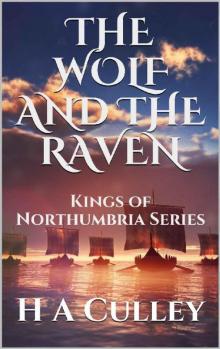 The Wolf and the Raven
The Wolf and the Raven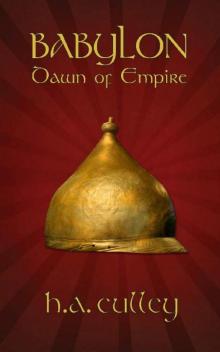 Dawn of Empire
Dawn of Empire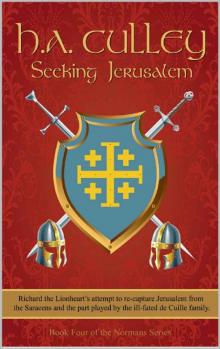 Seeking Jerusalem
Seeking Jerusalem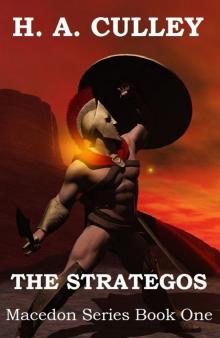 The Strategos
The Strategos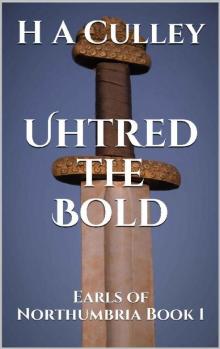 Uhtred the Bold
Uhtred the Bold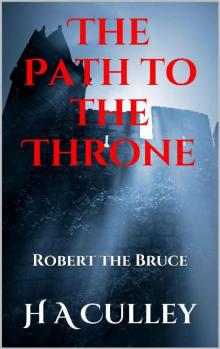 The Path to the Throne
The Path to the Throne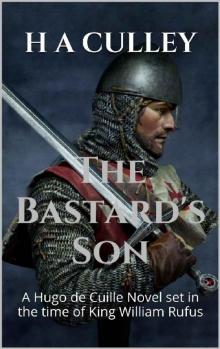 The Bastard's Son
The Bastard's Son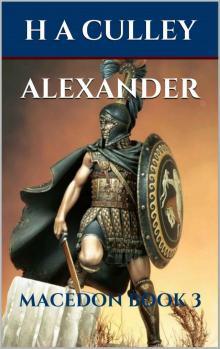 Alexander
Alexander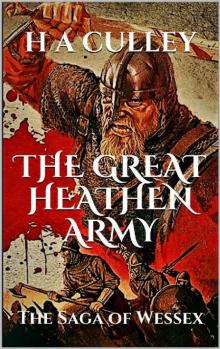 The Great Heathen Army
The Great Heathen Army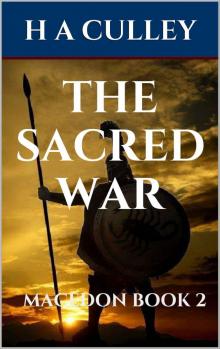 The Sacred War
The Sacred War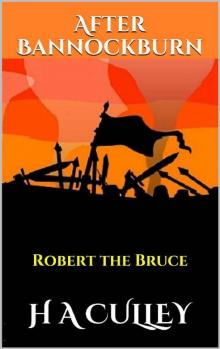 After Bannockburn
After Bannockburn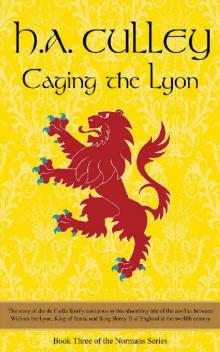 Caging the Lyon
Caging the Lyon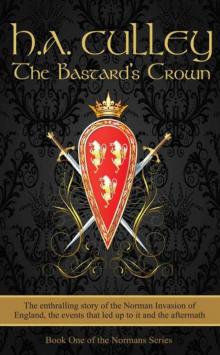 The Bastard's Crown
The Bastard's Crown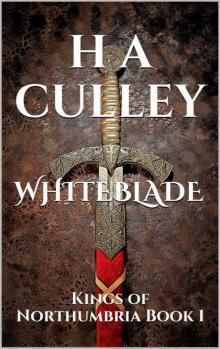 WHITEBLADE
WHITEBLADE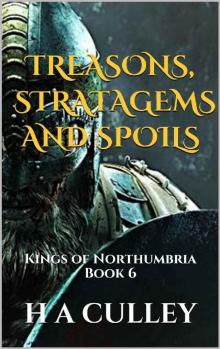 TREASONS, STRATAGEMS AND SPOILS: Kings of Northumbria Book 6
TREASONS, STRATAGEMS AND SPOILS: Kings of Northumbria Book 6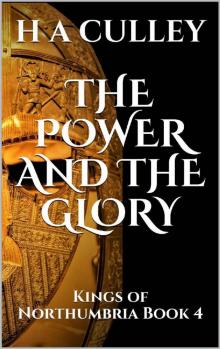 THE POWER AND THE GLORY: Kings of Northumbria Book 4
THE POWER AND THE GLORY: Kings of Northumbria Book 4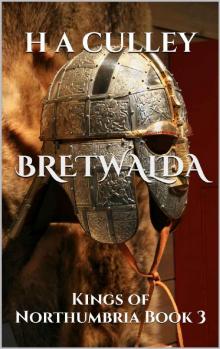 BRETWALDA: Kings of Northumbria Book 3
BRETWALDA: Kings of Northumbria Book 3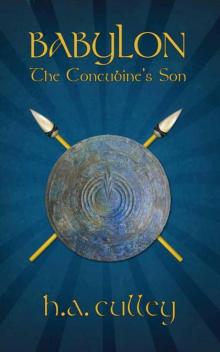 The Concubine's Son
The Concubine's Son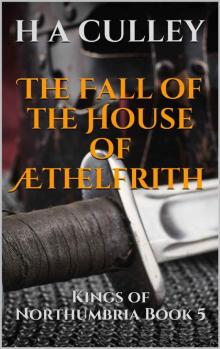 The Fall of the House of Æthelfrith: Kings of Northumbria Book 5
The Fall of the House of Æthelfrith: Kings of Northumbria Book 5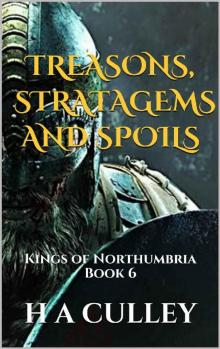 TREASONS, STRATAGEMS AND SPOILS
TREASONS, STRATAGEMS AND SPOILS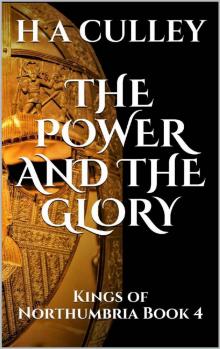 THE POWER AND THE GLORY
THE POWER AND THE GLORY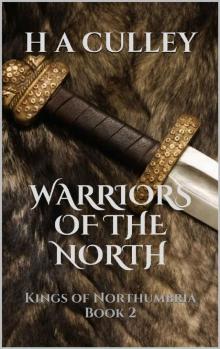 WARRIORS OF THE NORTH
WARRIORS OF THE NORTH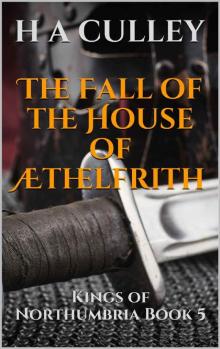 The Fall of the House of Æthelfrith
The Fall of the House of Æthelfrith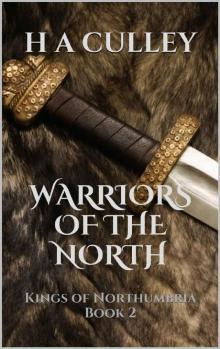 WARRIORS OF THE NORTH: Kings of Northumbria Book 2
WARRIORS OF THE NORTH: Kings of Northumbria Book 2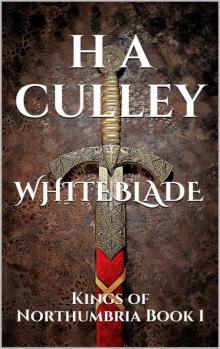 WHITEBLADE: Kings of Northumbria Book 1
WHITEBLADE: Kings of Northumbria Book 1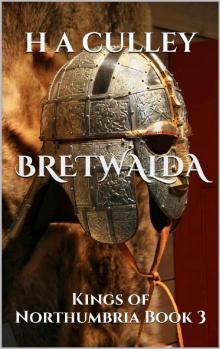 BRETWALDA
BRETWALDA